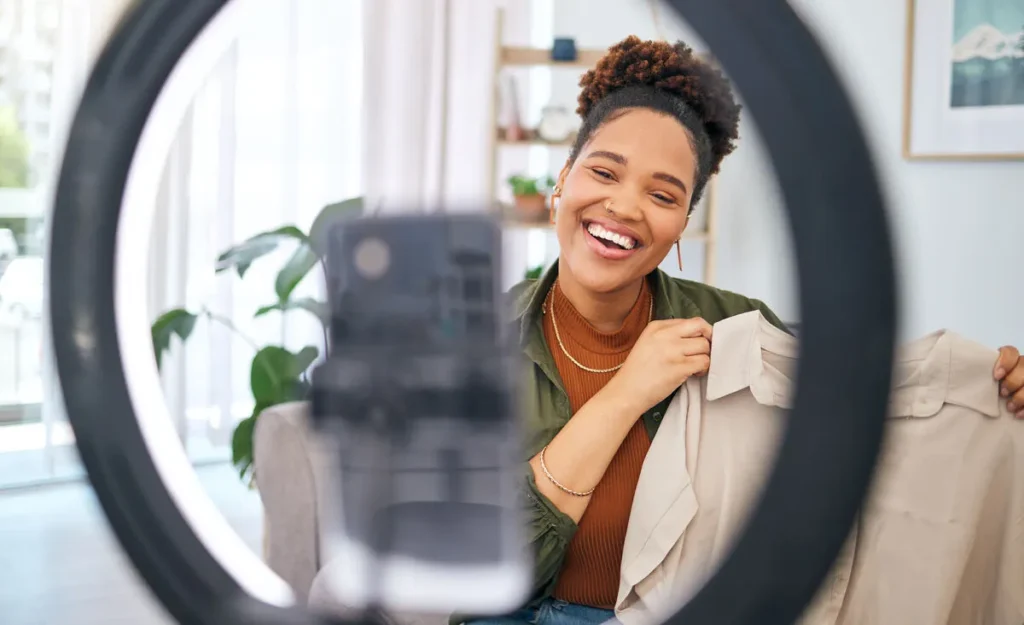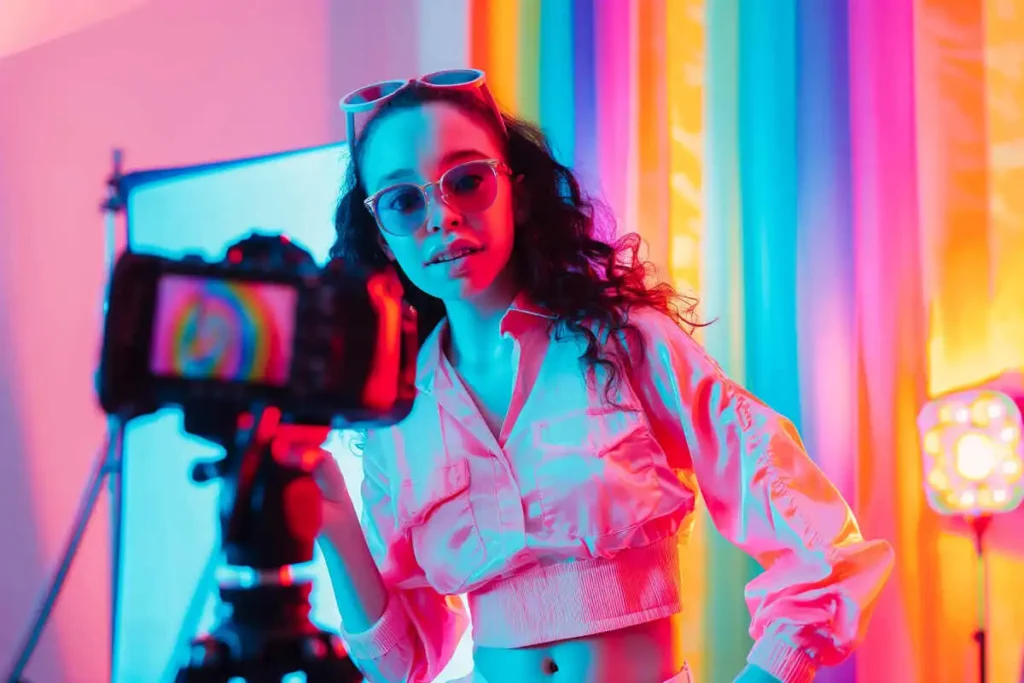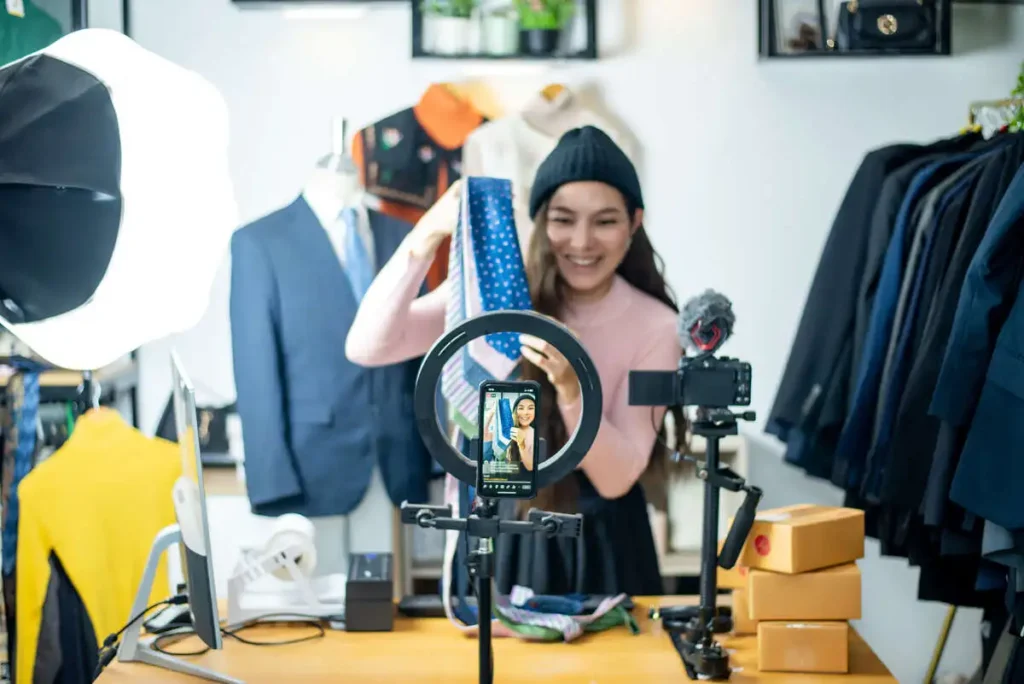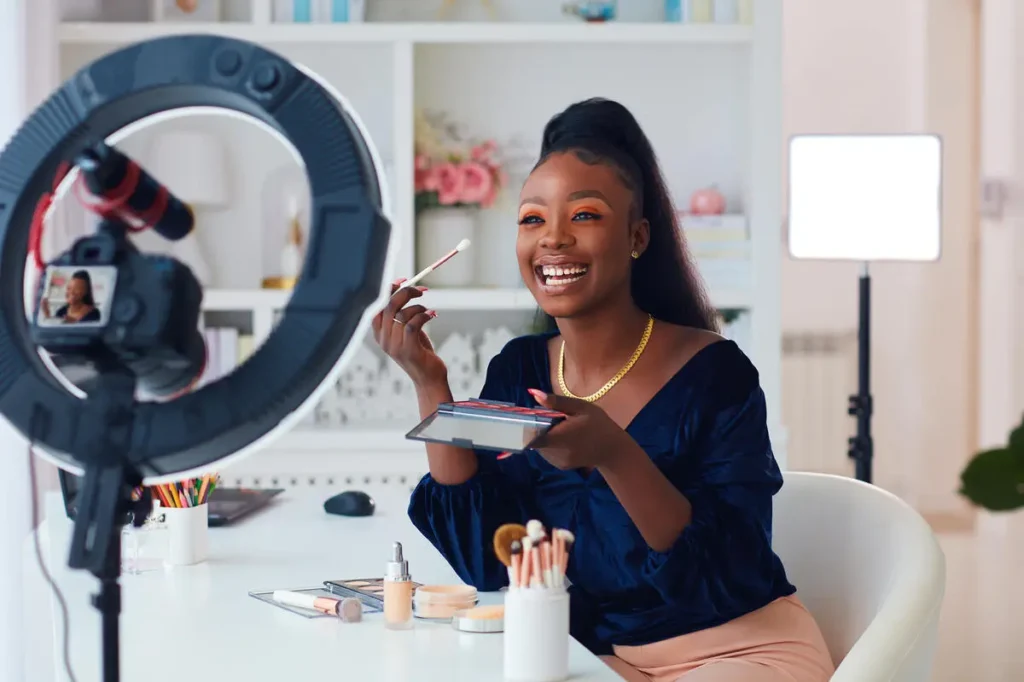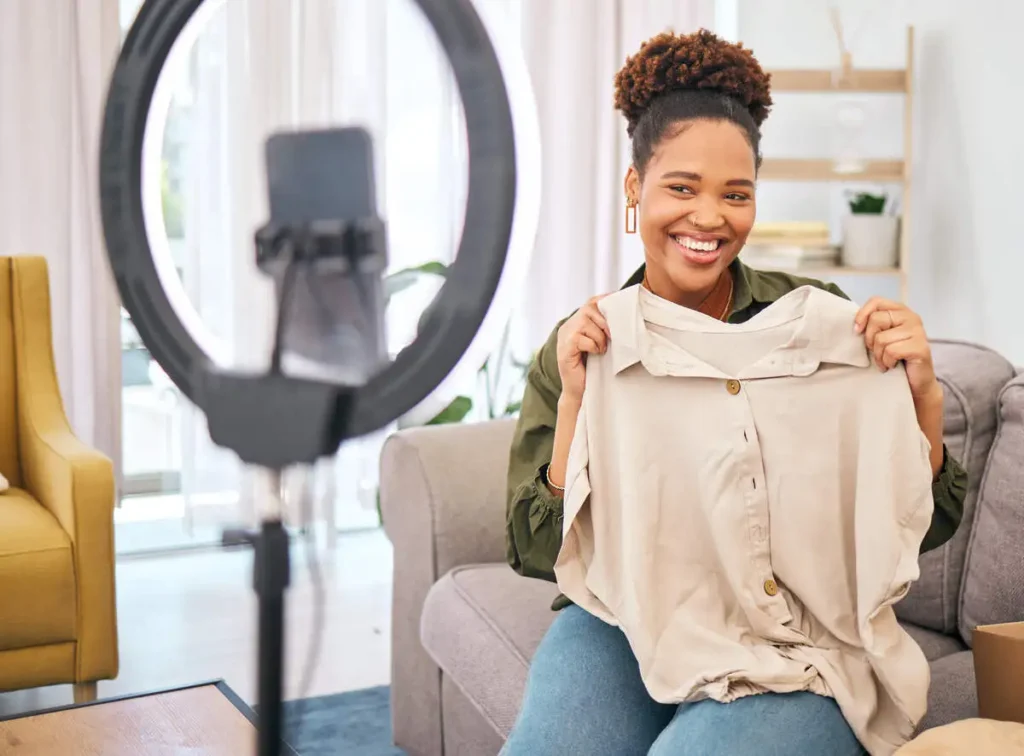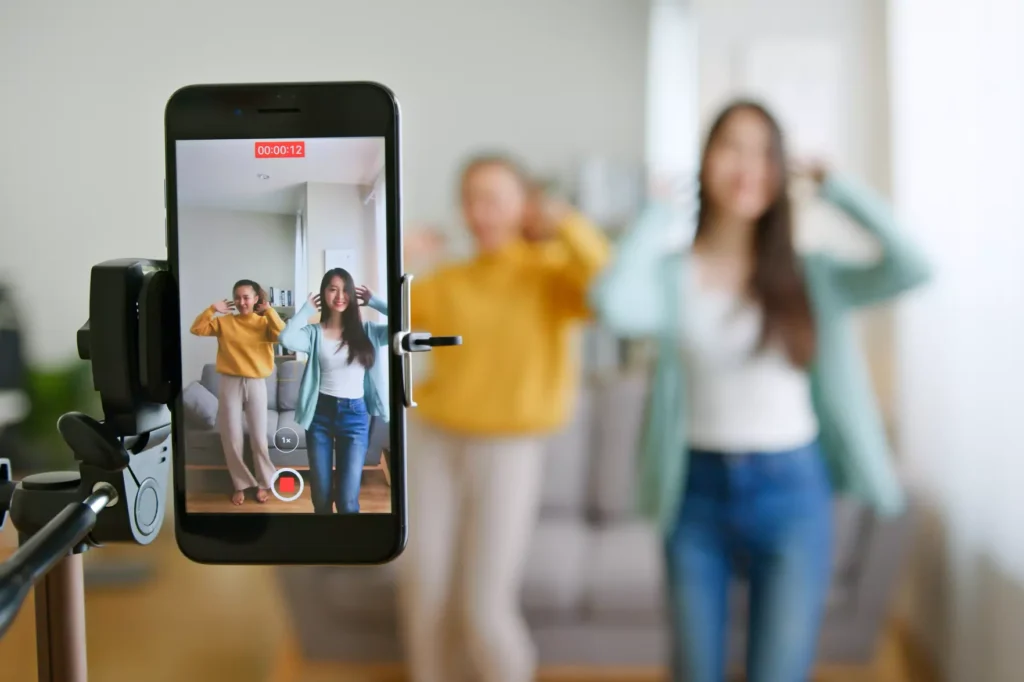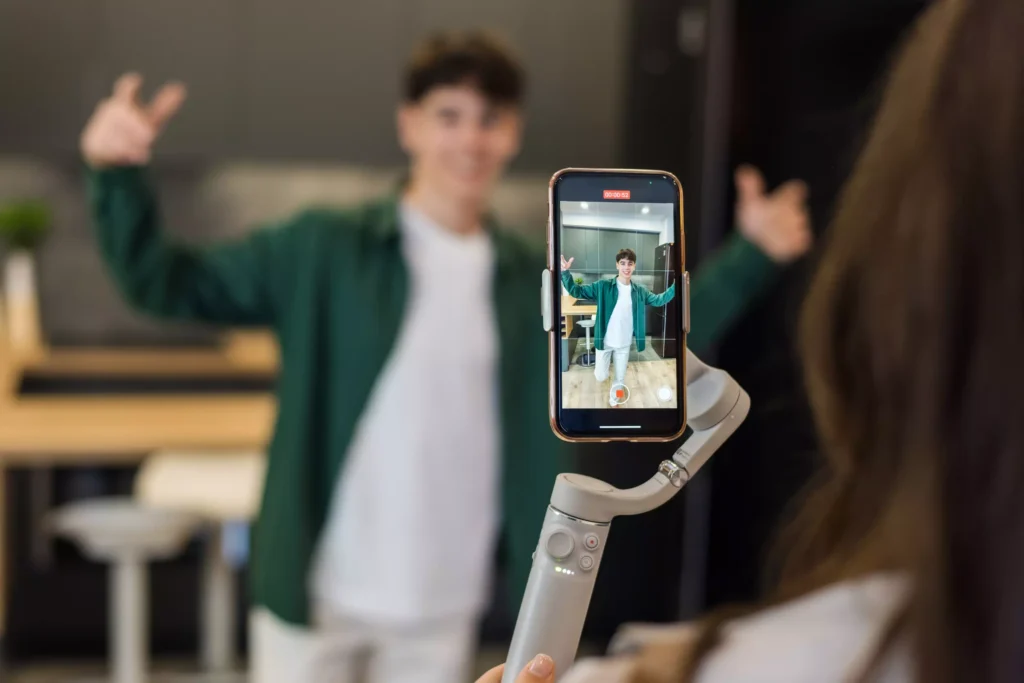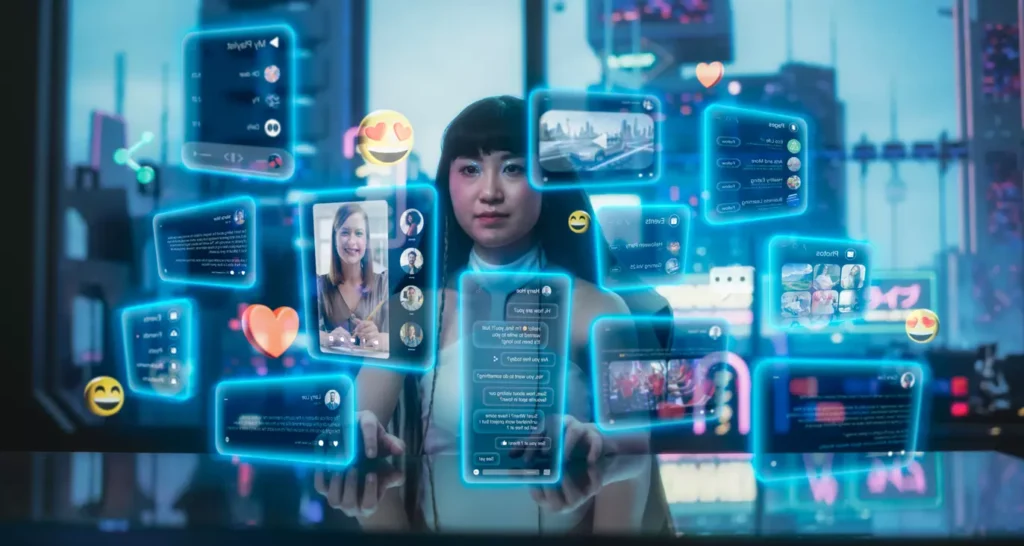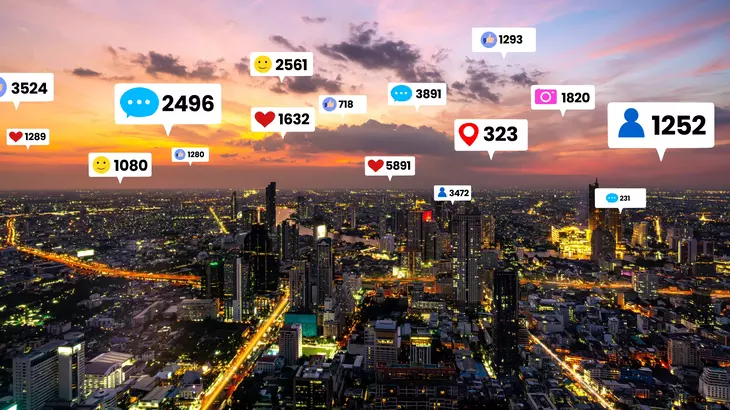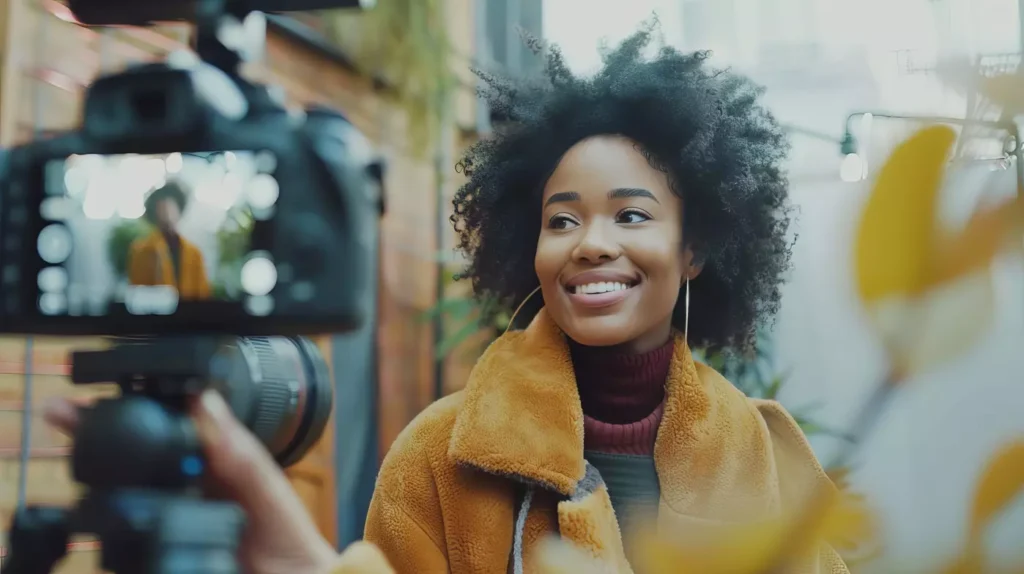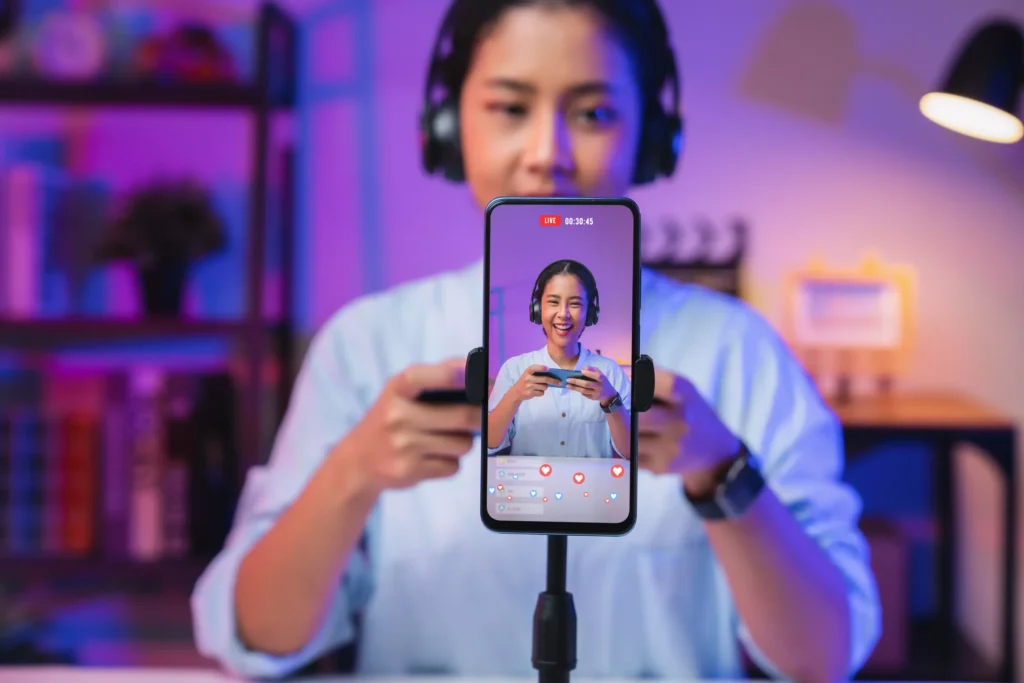The Lion's Den
Content Creator Vs. Influencer
How To Hire Content Creator

In the ever-evolving landscape of digital marketing, the terms “content creator” and “influencer” are often used interchangeably, but they represent distinct roles with unique objectives and responsibilities. As brands navigate the complex world of social media, understanding these differences is crucial for developing effective marketing strategies. Are you trying to decide whether to collaborate with a content creator, an influencer, or perhaps both? This blog will unravel the intricacies of each role, explore their specific contributions to the digital ecosystem, and help you determine which aligns best with your marketing goals. Whether you’re a seasoned marketer or just starting, grasping the nuances between content creators and influencers will empower you to make informed decisions that resonate with your target audience.
What Is the Difference Between a Content Creator and an Influencer?
Definitions of Content Creator and Influencer
Understanding the distinction between a content creator and an influencer is pivotal for marketing professionals embarking on the dynamic world of digital marketing. A content creator is primarily someone who produces and shares original content through various digital platforms. This could include blog posts, videos, photography, and graphics. Their primary goal is to create compelling content that attracts and engages their audience.
On the other hand, an influencer is a person who has built a significant following on social media platforms. They hold the ability to influence the purchasing decisions and opinions of their followers. Influencers often collaborate with brands to promote products and services, leveraging their established trust and relatability with their audience.
Key Differences in Roles and Responsibilities
When looking to hire a content creator or an influencer, it’s important to know that the primary difference lies in their core objectives. While content creators focus on producing high-quality content, influencers concentrate on engaging with their followers and endorsing products. Content creators may or may not have a sizable following; their expertise lies in content generation. Conversely, influencers are valued for their ability to drive engagement and brand loyalty among their audience. Consequently, collaborations with content creators often aim at creative storytelling, while influencer partnerships focus on reach and engagement.
Examples of Content Creators vs. Influencers
An example of a content creator could be a YouTuber who produces detailed tutorials on graphic design, whereas an influencer might be a fashion Instagrammer showcasing the latest trends and sponsored clothing lines. Both roles are vital in the digital marketing ecosystem, and they often intertwine, yet their primary focus varies.
Pros and Cons of Each Role
Being a content creator allows for creative freedom and the opportunity to build a personal brand based on expertise. However, it might take time to grow a substantial audience and monetize the content. On the other hand, influencers can benefit from lucrative partnerships early on due to their large followings, but they might face scrutiny over the authenticity of their endorsements. Balancing both roles, if possible, could offer the best of both worlds, combining the art of content creation with the strategic outreach of influencer marketing.
Who Are Considered Content Creators?
Exploring the Universe of Content Creators
In the vast world of digital media, content creators are the architects who design, craft, and share a myriad of content formats across diverse platforms. These individuals, often hailed as the backbone of digital spaces, utilize their creativity to engage, inform, and entertain audiences.
Major Platforms Hosting Content Creators
Content creators thrive on a multitude of platforms, each offering unique opportunities for expression and connection. Instagram, with its visually-driven ecosystem, is home to many creators who specialize in photography, short videos, and even IGTV episodes. YouTube serves as a virtual stage for creators to publish extended video content, ranging from vlogs and tutorials to in-depth reviews and documentaries. On TikTok, creators leverage short, impactful videos to capture the hearts of younger demographics. Meanwhile, blogs, podcasts, and streaming channels on platforms like Twitch and Spotify diversify the content landscape further.
Trailblazing Content Creators
Some standout examples of successful content creators include names like Casey Neistat on YouTube, who has redefined vlogging with his cinematic storytelling. On Instagram, influencers like Huda Kattan have parlayed their expertise in makeup into massive followings and successful business ventures. These creators exemplify the power of authentic engagement and niche expertise.
Defining a Content Creator
A person can be considered a content creator if they are actively and consistently producing multimedia content that is delivered to an audience. This could be through writing, filming, photographing, or designing. A key trait of a content creator is a deep understanding of their audience’s preferences and the ability to craft content that aligns with those tastes.
The Role of Digital Creators
Within the broader scope of content creators, digital creators focus more on online and digital content creation, often harnessing the latest technology to produce innovative works. They might specialize in anything from e-books to virtual reality experiences, demonstrating the evolving nature of content in the digital realm. Their creations not only entertain but can educate, inspire, and catalyze community building among digital natives.
Do Influencers Create Content?
Absolutely! One of the fundamental roles of an influencer is creating engaging and compelling content. However, the kind of content they produce can differ significantly from the content created by traditional content creators. Let’s dive into the specifics of influencers’ roles in content creation and how their strategies might differ.
Influencers’ Role in Content Creation
Influencers are often seen as individuals who have the power to affect the purchasing decisions of others due to their authority, knowledge, position, or relationship with their audience. Unlike traditional celebrities, influencers often build their followings through social media platforms like Instagram, YouTube, and TikTok by creating content that resonates with their audience. This content can range from tutorial videos and vlogs to product reviews and daily life updates.
Comparison of Influencer Content vs. Creator Content
While both content creators and influencers produce content, their objectives can be quite different. Content creators typically focus on producing high-quality, informative, or entertaining content, and their primary goal is to engage and educate their audience. Influencers, on the other hand, often create content aimed at promoting products or services to their loyal followers. This means their content might be more promotional and aimed at driving engagement and sales rather than purely providing value.
Content Strategies Utilized by Influencers
Influencers employ a variety of content strategies designed to engage their followers and partner with brands. Key strategies include:
- Sponsored Posts: Paid collaborations with brands where influencers showcase products or services in their content.
- Product Reviews: Honest reviews of products that their audience might be interested in.
- Giveaways: Contests and giveaways to boost engagement and attract new followers.
- Behind-the-Scenes Content: Sharing glimpses of their personal lives or work processes to build a more personal connection with their followers.
Examples of Influencer-Generated Content
To illustrate the point, let’s look at some examples of successful influencer-generated content:
- Fashion Bloggers: Influencers like Chiara Ferragni who create lookbooks and style guides.
- Fitness Gurus: Influencers like Kayla Itsines who post workout videos and fitness tips.
- Beauty Influencers: Influencers like James Charles produce makeup tutorials and product reviews.
- Tech Reviewers: Influencers like Marques Brownlee provide in-depth reviews of the latest gadgets and technology.
In summary, influencers are indeed creators at their core, yet their primary focus is on leveraging their influence to drive engagement and sales for their partnered brands. If you’re interested in learning how to hire an influencer read our blog!
How Do I Become a Content Creator or Influencer?
Are you ready to dive into the dynamic world of social media and digital marketing? Becoming a successful content creator or influencer requires strategic planning, dedication, and a clear understanding of your goals. Here’s a step-by-step guide to get you started on your career path.
Steps to Start as a Content Creator
First, identify your niche. It’s crucial to focus on a specific area of expertise or interest to build a dedicated audience. Whether it’s fashion, tech reviews, travel, or fitness, your content should resonate with a targeted demographic. Next, invest in quality equipment; good lighting, a reliable camera, and editing software can elevate your content’s professionalism.
Content planning and consistency are your best friends. Develop a content calendar to stay organized and ensure a regular posting schedule. Engaging with your audience through comments, direct messages, and live interactions fosters a strong community around your content. Analytics tools such as Google Analytics or platform-specific insights can guide you in fine-tuning your strategy based on what’s working and what isn’t.
Steps to Start as an Influencer
To embark on the journey of becoming an influencer, start by identifying the brands and products you already love. Authenticity is key; your audience will trust and engage with you more if they see genuine enthusiasm in your endorsements. Develop a personal brand—your unique voice, style, and values that differentiate you from others.
Once you’ve built a solid foundation, reach out to brands for collaborations. Start by leveraging influencer marketing platforms like Lionize to find opportunities that align with your niche. Creating high-quality, engaging sponsored content can open doors to larger partnerships and a broader audience.
Skills Needed for Both Careers
Both content creators and influencers require a variety of skills. Strong storytelling abilities, excellent communication, and an understanding of social media trends are essential. Technical skills in photography, video editing, and SEO can also give you an edge. Additionally, a basic knowledge of marketing principles helps in effectively promoting your personal brand.
Tips for Growing Your Presence and Following
To grow your presence, consistency in your posting schedule is crucial. Engage actively with your audience and create value-driven content that stands out. Collaborate with other creators or influencers to tap into their audience and increase your reach. Paid advertising and partnerships can also boost your visibility.
Revolutionize your influencer marketing journey with Lionize’s AI-powered platform. Save time, streamline your processes, and ensure your campaign’s success with our commitment-free, success-based partnership. Ready to elevate your digital presence? Sign up for free and take the first step today!
Conclusion
Navigating the dynamic world of digital marketing requires a clear understanding of the roles that content creators and influencers play in shaping audience perceptions and driving engagement. While both are integral to a successful marketing strategy, recognizing their distinct approaches can help brands tailor their campaigns to achieve specific goals. Whether you’re leaning towards the storytelling prowess of a content creator or the persuasive power of an influencer, the key is to align your choices with your brand’s objectives and audience needs. As the digital landscape continues to evolve, staying informed about these roles will not only enhance your marketing efforts but also foster authentic connections with your audience. So, as you embark on your marketing journey, consider how these roles can work together to amplify your message and create meaningful impact.





